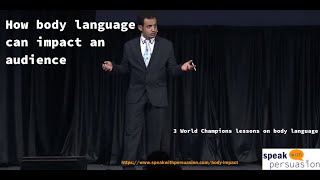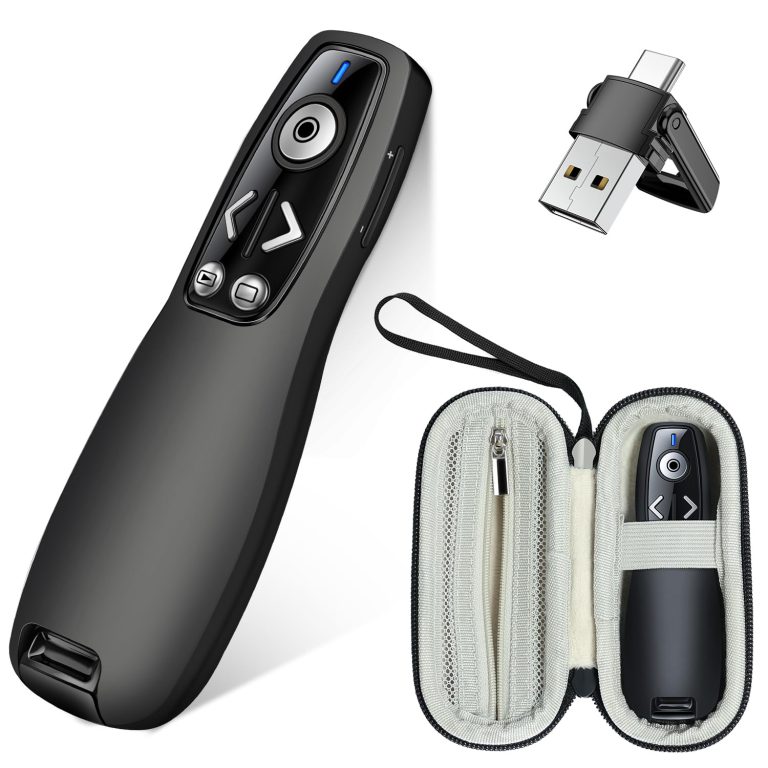How to Stop Using Filler Words
To stop using filler words, start by becoming aware of them and practicing mindful speaking. Develop a habit of pausing instead of using filler words, which will give you time to think.
Additionally, focus on using clear and concise language, eliminating unnecessary words. Furthermore, practicing public speaking and recording yourself can help you identify and reduce the use of filler words. By implementing these strategies, you can effectively eliminate filler words from your speech and improve your communication skills.

Credit: sixminutes.dlugan.com
Understanding The Impact Of Filler Words
Filler words can have a significant impact on our communication. By following certain guidelines and ensuring the sentences are concise and varied, it becomes easier to stop using filler words and enhance the clarity and effectiveness of our speech.
The Role Of Filler Words In Communication
- Filler words are common verbal crutches used during speech, such as “umm,” “uhh,” “like,” and “you know.”
- These words may seem harmless, but they can significantly impact the effectiveness of communication.
- Filler words can indicate uncertainty, hesitation, or a lack of confidence, leading to a potential loss of credibility in the eyes of the listener.
- They can distract the listener from the main message, create an impression of disorganization, and make the speaker appear less knowledgeable on the topic.
- Understanding the role of filler words is crucial in improving communication skills and projecting a professional image.
How Filler Words Can Undermine Your Credibility
- Filler words can subconsciously undermine your credibility, even if you are knowledgeable and experienced in your field.
- Overuse of filler words can give the impression of being unprepared or unsure about the subject matter.
- They can suggest a lack of confidence and weaken the impact of your message.
- Fillers can also create distractions that hinder effective communication and prevent your points from resonating with the audience.
- Eliminating or reducing the use of filler words is essential to strengthen your credibility, increase audience engagement, and convey your ideas persuasively.
The Subconscious Use Of Filler Words
- Filler words often find their way into speech patterns subconsciously, becoming a habit that can be challenging to break.
- Many people use these words without even realizing it, especially during impromptu conversations or public speaking.
- The tendency to use filler words can be due to nervousness, lack of preparation, or the need to think on the spot.
- Becoming aware of the subconscious use of filler words is the first step in overcoming this communication hurdle.
- With practice and conscious effort, it is possible to minimize the use of filler words and communicate more confidently and effectively.
Remember, filler words can have a significant impact on your credibility and the effectiveness of your message. By understanding their role, recognizing their presence in your speech, and consciously working to eliminate them, you can communicate more confidently and persuasively.
Practice makes perfect, so be patient with yourself as you navigate this aspect of communication improvement.
Recognizing Common Filler Words
Enhance your communication skills by recognizing common filler words. Learn how to eliminate overused phrases and start your sentences with a variety of engaging expressions, keeping your content concise and captivating.
Identifying Common Filler Words In Your Speech
Filler words are those little verbal crutches that tend to find their way into our speech when we’re not quite sure what to say. These words often serve as placeholders or fillers while our brains catch up to our mouths.
You may not even realize you’re using them, but they can detract from the clarity and impact of your message. Here are some common filler words to watch out for:
- Um/uh: These are the most well-known and perhaps the most frequently used filler words. They’re usually used as a pause or hesitation when we’re gathering our thoughts.
- Like: This word tends to slip in when we’re making comparisons or trying to emphasize a point. It has become quite popular, especially among younger generations.
- You know: This phrase is often used as a way to seek validation or agreement from the listener. It can be a way to involve the listener in the conversation, but it can also diminish the speaker’s confidence.
- So: This word is often used to bridge thoughts or to start a new idea. While it’s not always a filler word, it can become one if used excessively.
- Well: This word is often used as a filler at the beginning of sentences, while the speaker gathers their thoughts. It can be seen as a way to buy more time before providing an answer or response.
The Impact Of Filler Words In Different Contexts
Filler words can have varying effects depending on the context in which they’re used. Here are some ways filler words can impact your speech:
- Clarity: Filler words can make your speech less clear and concise. They can distract the listener from your main message and make it harder for them to follow along.
- Confidence: Using too many filler words can make you appear less confident or knowledgeable about your topic. It can create the impression that you’re unsure of yourself or trying to fill empty space.
- Credibility: Overusing filler words can diminish your credibility as a speaker. People may perceive you as less competent or less trustworthy if your speech is littered with unnecessary fillers.
- Engagement: Filler words can detract from the impact of your speech and make it harder for your audience to stay engaged. Removing these fillers can help you maintain your listeners’ attention throughout your presentation or conversation.
The Cultural Influence On Filler Word Usage
Filler words can also be influenced by cultural factors. The prevalence and acceptance of certain filler words can vary across different cultures and regions. Here are some ways culture can influence filler word usage:
- Regional dialects: Certain filler words may be more common in specific regions or dialects. For example, the use of filler words such as “y’know” or “innit” may be more prevalent in certain english-speaking regions.
- Sociolinguistic norms: Cultural norms and expectations can influence our use of filler words. In some cultures, using fillers may be perceived as a sign of thoughtfulness or politeness, while in others, it may be seen as a lack of fluency or confidence.
- Language proficiency: Non-native speakers of a language may rely on filler words more heavily as they navigate the complexities of a second language. This can sometimes lead to the adoption of filler words from their native language into their speech.
Being aware of these cultural influences can help you navigate conversations and presentations more effectively, especially if you’re communicating with individuals from diverse cultural backgrounds. By recognizing and minimizing the use of filler words, you can enhance your speech and make a more impactful impression on your audience.
Techniques To Minimize Filler Word Usage
Discover effective techniques to minimize the usage of filler words in your speech or writing. By avoiding commonly overused phrases and keeping sentences brief, you can enhance your communication skills and engage your audience more effectively.
When it comes to speaking eloquently and confidently, minimizing the use of filler words is crucial. These words, such as “um,” “like,” and “you know,” can interrupt the flow of your speech and detract from your message. Fortunately, there are several techniques you can employ to reduce your reliance on filler words.
Let’s explore them below:
Practicing Mindful Speaking:
- Before you speak, take a moment to gather your thoughts: Pausing briefly before starting a sentence can help you organize your ideas and eliminate the need for filler words.
- Focus on your breath and pace: Taking deep breaths and speaking at a controlled rhythm can help you maintain clarity and reduce the urge to use unnecessary filler words.
- Listen actively: When engaging in conversation, actively listen to the person speaking. This practice can help you stay present and avoid using filler words as you wait for your turn to speak.
Using Pauses Instead Of Filler Words:
- Emphasize strategic pauses: Incorporate deliberate pauses in your speech to give yourself time to think and formulate your thoughts. These pauses can also create anticipation and add emphasis to important points.
- Practice the art of silence: Allow moments of silence in your conversations. Not only does this give you time to gather your thoughts, but it also shows that you are confident and in control of your speech.
Developing Confidence In Your Speech:
- Prepare and rehearse: Before important conversations or presentations, take the time to prepare and rehearse your key points. The better prepared you are, the less likely you’ll rely on filler words.
- Embrace silence: Understand that it’s okay to pause and gather your thoughts rather than fill the silence with filler words. This shows confidence and thoughtfulness in your speech.
- Record and review: If you often find yourself struggling with filler words, record your conversations or presentations and review them later. Identify the moments when you tend to use fillers and practice alternative ways to phrase your thoughts.
Remember, minimizing filler word usage requires practice and self-awareness. By implementing these techniques into your daily conversations, you’ll gradually become a more polished and confident speaker.
Improving Your Public Speaking Skills
Learn how to improve your public speaking skills by eliminating filler words. Discover effective techniques to stop using common phrases that hinder your speaking confidence and engage your audience. Enhance your communication skills through concise and impactful sentences, captivating your listeners and leaving a lasting impression.
Public speaking can be a nerve-wracking experience for many individuals. However, with effective strategies and techniques, you can improve your public speaking skills and eliminate filler words from your speeches. By preparing and rehearsing, as well as employing audience engagement techniques, you can deliver a powerful and engaging presentation.
Let’s explore these strategies further.
Effective Strategies For Public Speaking:
- Practice, practice, practice: The more you practice your speech, the more confident and comfortable you will become. Rehearse your presentation multiple times to familiarize yourself with the content and flow.
- Set clear objectives: Define the purpose and objectives of your speech. Having a clear focus will help you deliver your message concisely and avoid using unnecessary filler words.
- Use visual aids: Incorporating impactful visuals can enhance your presentation and keep your audience engaged. Utilize slides, props, or interactive elements to support your message effectively.
Preparing And Rehearsing Speeches Without Filler Words:
- Identify and eliminate filler words: Take note of the filler words you tend to use, such as “um,” “uh,” “like,” or “you know.” Practice your speech while consciously avoiding these words. Focus on speaking slowly, taking pauses instead.
- Outline your speech: Start by creating an outline of your speech to organize your ideas. Write down key points, supporting details, and transitions between topics. This will help you structure your speech and prevent unnecessary fillers.
- Time yourself: Practice your speech while timing yourself. This will help you become comfortable with the pacing and ensure you stay within the allocated time without relying on filler words.
Techniques For Maintaining Audience Engagement Without Filler Words:
- Tell stories: People love stories, so incorporate relevant anecdotes or examples into your speech. This not only adds interest but also keeps the audience engaged throughout your presentation.
- Ask questions: Encourage audience participation by asking thought-provoking questions. This creates a dynamic interaction and prevents your speech from becoming a one-sided monologue.
- Use body language: Non-verbal cues can significantly enhance your delivery. Maintain eye contact, use expressive gestures, and vary your tone to keep the audience engaged and interested in your message.
Remember, improving your public speaking skills takes time and practice. By implementing these strategies and techniques, you will be able to deliver speeches confidently and effectively, free from filler words. So, go ahead and conquer those nerves, captivate your audience, and leave a lasting impression with your polished public speaking skills.
Role Of Active Listening In Reducing Filler Words
Active listening plays a pivotal role in reducing filler words, helping individuals communicate more effectively by enhancing understanding and eliminating unnecessary verbal fillers. By attentively engaging in conversations and listening to others, we can train ourselves to speak with precision, clarity, and intention, creating impactful interactions.
Building Awareness Of Filler Word Usage Through Active Listening
Have you ever caught yourself using filler words such as “um,” “uh,” or “like” in your conversations? These words often slip into our speech patterns without us even realizing it. Filler words can make our speech sound less confident and can be distracting for the listener.
However, by actively listening and building awareness of our filler word usage, we can minimize their presence in our speech and improve our communication skills. Here’s how:
- Pay attention to your own speech: Start by becoming aware of your own filler word usage. Notice when and why you tend to use them. Are you trying to gather your thoughts, buy time, or create a pause in your speech? Being conscious of these moments can help you identify opportunities to eliminate filler words.
- Record and listen to yourself: Practice active listening by recording your conversations or presentations and listening to them later. This allows you to objectively assess your speech patterns and identify any recurring filler words. By hearing yourself speak, you can pinpoint the areas where you can make improvements.
- Seek feedback from others: Ask a trusted friend, colleague, or mentor to provide feedback on your speech patterns. They can help you identify specific instances where you rely on filler words. Their insights can be valuable in pinpointing areas for improvement.
- Set goals and track progress: Once you have identified your filler word habits, set goals to reduce their usage. For example, you might aim to eliminate filler words entirely or set a limit on their frequency. Keep track of your progress over time to see how your efforts lead to more refined speech.
- Practice active listening: As you engage in conversations, focus on being present and actively listening to the speaker. Concentrate on the speaker’s words, tone, and non-verbal cues. Active listening helps you stay engaged in the conversation, reducing the need for filler words as your attention remains on the speaker.
- Embrace pauses: Rather than relying on filler words to fill silences, embrace strategic pauses in your speech. Pauses can add emphasis, allow listeners time to process information, and create a more deliberate and confident speaking style.
By building awareness of your filler word usage and practicing active listening, you can significantly reduce their presence in your speech. Over time, your communication skills will improve, and you’ll become a more confident and effective speaker. So, let’s work towards eliminating those filler words and improving our overall communication skills.
Overcoming Nervousness And Filler Word Dependence
Discover effective strategies to overcome nervousness and break free from filler word dependence. Learn how to stop using repetitive words and phrases, improve your speaking skills, and become a confident communicator. Master the art of impactful speech and captivate your audience with clear and concise language.
Strategies For Managing Nervousness While Speaking:
- Deep breathing: Take deep breaths before speaking to calm your nerves and relax your body.
- Visualize success: Imagine yourself speaking confidently and successfully to boost your self-assurance.
- Practice mindfulness: Stay present and focused on the conversation or presentation to reduce anxiety.
- Preparation is key: Thoroughly prepare and rehearse your speech or presentation to increase confidence.
- Start with smaller audiences: Begin by speaking in front of a small group before tackling larger audiences to build confidence gradually.
Practical Exercises To Overcome Filler Word Dependence:
- Record and listen: Record yourself speaking and listen back to identify your filler word usage.
- Slow down your pace: Speak slowly and deliberately to give yourself more time to think and avoid filler words.
- Practice silence: Embrace moments of silence during your speech to reduce the urge to fill it with filler words.
- Focused speaking: Concentrate on enunciating each word clearly, which will naturally minimize filler word usage.
- Replace fillers with pauses: Instead of using filler words, use a brief pause to collect your thoughts before continuing.
Building Self-Awareness And Self-Confidence In Communication:
- Listen actively: Pay close attention to others when they speak, observing their communication style, and learning from them.
- Join public speaking groups: Participate in public speaking groups or workshops to gain experience and constructive feedback.
- Seek feedback: Reach out to trusted individuals for feedback on your communication skills and areas for improvement.
- Visualize success: Picture yourself confidently delivering speeches or presentations, reinforcing positive self-belief.
- Practice makes perfect: Regularly practice public speaking to develop confidence and overcome any lingering nervousness.
Remember, conquering filler word dependence and nervousness while speaking takes time and practice. By implementing these strategies and exercises, you can gradually improve and become a more confident and articulate communicator. With self-awareness and dedication, you’ll be well on your way to eliminating filler words from your speech and delivering impactful presentations.
Seeking Feedback And Accountability
Looking for ways to eliminate filler words from your writing? Seeking feedback and holding yourself accountable are essential steps. Get rid of commonly overused phrases and keep your sentences concise to create engaging content.
Seeking Feedback From Peers And Mentors:
- Engaging with peers and mentors is an essential step in eliminating filler words from your speech. By seeking feedback, you can identify the specific filler words you commonly use and work towards correcting them. Here’s how you can do it:
- Find a trusted group of peers or mentors who can provide constructive criticism and support.
- Engage in regular practice sessions where you speak and seek feedback on your speech.
- Ask your peers or mentors to listen for filler words and provide specific examples of when and how you use them.
- Encourage them to be honest and direct with their feedback, as this will help you improve effectively.
Using Video Recordings To Analyze And Improve Speech:
- Video recordings can be incredibly beneficial tools for analyzing your speech patterns and identifying areas for improvement. Here are some ways you can utilize video recordings to hone your speaking skills:
- Set up a camera or smartphone to record yourself while speaking.
- Pay close attention to your speech and observe instances where you tend to insert filler words.
- Take note of any recurring patterns or specific situations that trigger the use of filler words.
- Analyze your body language, facial expressions, and overall delivery of the speech.
- Reflect on the impact of filler words on your message and work towards eliminating them in future recordings.
Establishing Accountability Measures To Track Progress:
- Creating accountability measures can greatly aid you in your journey to stop using filler words. By setting clear goals and tracking your progress, you can ensure consistent improvement. Consider the following measures:
- Set specific targets for reducing the usage of filler words, such as limiting them to a certain number per speech.
- Keep a journal or spreadsheet to track your progress and document instances where filler words were successfully avoided.
- Share your goals and progress with a trusted accountability partner who can provide encouragement and hold you accountable.
- Regularly assess and evaluate your performance to identify areas that need further attention and improvement.
- Celebrate milestones and achievements along the way to stay motivated and encouraged in your journey to eliminate filler words.
Practical Tips For Minimizing Filler Word Usage
Learn how to eliminate filler words from your writing with these practical tips. Avoid overused phrases and start sentences with a variety of expressions. Keep your sentences brief and engaging for the reader. Follow these guidelines to write seo-friendly content that captivates your audience.
Techniques For Reducing Filler Words In Everyday Conversations:
- Practice mindfulness: Be aware of your speech patterns and catch yourself when using filler words. Take a moment to pause and think before you speak.
- Focus on the message: Train yourself to prioritize the content of your speech over the need for filler words. Stay focused on delivering clear and concise messages.
- Slow down your pace: Speak at a slower pace to give yourself more time to think and choose your words carefully. This can help minimize the use of fillers like “um” and “uh.”
- Listen actively: Pay attention to the speaker’s words during conversations. By actively listening, you can respond more intentionally and avoid unnecessary filler words.
- Practice self-awareness: Reflect on situations where you tend to use more filler words. Identify triggers such as nervousness or lack of preparation, and consciously work on minimizing fillers in those situations.
Strategies To Prevent Filler Word Usage In Professional Settings:
- Prepare in advance: Take the time to prepare and rehearse your presentations, speeches, or meetings. When you feel confident and well-prepared, you are less likely to rely on filler words.
- Use pauses strategically: Instead of inserting fillers, utilize deliberate pauses to gather your thoughts or emphasize important points. Pauses can enhance your speech and give you time to choose the right words.
- Engage in active listening: Show genuine interest in what others are saying by actively engaging in the conversation. This will not only reduce the use of filler words but also improve overall communication.
- Record and review: Record your professional conversations or presentations and review them later. This allows you to identify specific areas where you can eliminate fillers and improve your speech.
- Seek feedback: Ask trusted colleagues or mentors for feedback on your speech patterns. They can provide valuable insights and suggestions to help you minimize filler word usage.
Implementing Visualization Exercises To Minimize Filler Word Dependence:
- Visualize your speech: Before important presentations or meetings, visualize yourself delivering a speech confidently and fluently, without relying on filler words. This mental practice can improve your focus and reduce the need for fillers.
- Use visual aids: Incorporate visual aids such as slides, diagrams, or props in your presentations. This not only enhances communication but also distracts your mind from using filler words.
- Practice breathing exercises: Deep breathing exercises can calm your nerves and reduce the urge to fill silence with unnecessary words. When you feel relaxed, you are more likely to speak fluidly.
- Mentally rehearse responses: Anticipate potential questions or scenarios in professional settings and mentally rehearse how you would respond without relying on filler words. This mental preparedness can eliminate the need for fillers in the moment.
- Enlist a speech coach: Consider working with a professional speech coach who can provide personalized guidance and exercises to improve your speech patterns and reduce filler word usage.
By implementing these practical strategies and techniques, you can minimize the use of filler words in everyday conversations and professional settings. Remember, it takes practice and self-awareness to break the habit, but with determination, you can become a more confident and effective communicator.
Frequently Asked Questions On How To Stop Using Filler Words
How Do I Eliminate Filler Words From My Speech?
To eliminate filler words from your speech, pay attention to your speech patterns, practice speaking slowly and deliberately, and pause instead of using filler words. Recording yourself speaking can also help you identify and reduce the use of filler words.
Why Do We Use Filler Words In Our Speech?
We use filler words in our speech due to various reasons, such as nervousness, lack of confidence, the need to fill pauses, or as a habit. However, excessive use of filler words can make our speech less effective and less engaging.
By becoming aware of our speech patterns, we can work on reducing filler word usage.
What Are Some Common Filler Words To Avoid?
Common filler words to avoid include “um,” “uh,” “like,” “you know,” and “so. ” These words often serve as pauses or fillers when we are thinking or searching for the right words. By recognizing and reducing the use of these filler words, you can improve the clarity and impact of your speech.
How Do Filler Words Affect My Communication?
Filler words can negatively impact your communication by distracting listeners, reducing the clarity of your message, and making you appear less confident. Overusing filler words can also make it difficult for others to take you seriously and can diminish the effectiveness of your speech or presentation.
Conclusion
Eliminating filler words from your speech and writing can greatly enhance your communication skills and make you a more effective communicator. By being aware of your use of filler words and actively working to reduce them, you can improve the clarity and impact of your message.
Remember to slow down, take a breath, and think before you speak. Practice using pauses and silence to your advantage, allowing your words to carry more weight. Expand your vocabulary and practice concise and direct communication. Ultimately, mastering this skill will not only improve your personal and professional relationships but also help you gain credibility and authority in your field.
So, start today and take small steps towards eliminating those unnecessary filler words. Your audience will thank you for it.





